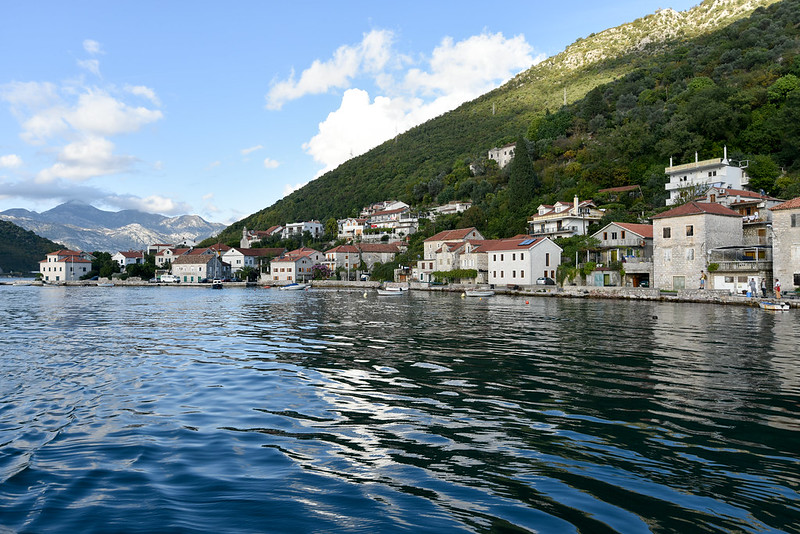Montenegro’s Mental Health
 The World Health Organization (WHO) ranks a country’s health not only by the absence of disease but also by a measure of the “physical, mental and social well-being” of its citizens. Mental health is inherently linked to a society’s cohesion and the well-being of its inhabitants. Montenegro’s mental health support infrastructures are historically lacking. However, significant steps have been taken to improve public health care facilities and support services in the last 30 years.
The World Health Organization (WHO) ranks a country’s health not only by the absence of disease but also by a measure of the “physical, mental and social well-being” of its citizens. Mental health is inherently linked to a society’s cohesion and the well-being of its inhabitants. Montenegro’s mental health support infrastructures are historically lacking. However, significant steps have been taken to improve public health care facilities and support services in the last 30 years.
Montenegro is a Balkan country in Southeastern Europe, bordering Croatia, Albania, Bosnia and Serbia. It is situated between the Dinaric Alps and the Adriatic Sea, making it an established tourist destination. Despite its popularity as a place of vacation and relaxation, Montenegro’s socioeconomic difficulties have had an inherent impact on the mental well-being of its citizens.
The Balkan War and Montenegro’s Mental Health
The Balkan War is still fresh in the minds of Montenegrins. For a decade, between 1991 and 2001, this violent ethnic conflict presided over the Balkan region and eventually culminated in a split from the former Yugoslavia in 2006. This bloody warfare, only recently resolved, left a legacy of trauma. Politically, Montenegro became a stable, peaceful democracy. However, the brutal civil war and Montenegro’s subsequent sovereignty had a significant impact on the economic development of the country, with its gross domestic product (GDP) falling from 45% in its Yugoslav era (1989) to 12% in 2000.
Historically, Montenegro’s psychological support has centered around patients whose serious disorders have symptoms of aggressive behavior, admitting them to Danilovgrad (Montenegro’s first psychiatric hospital, founded in the 20th century). The remaining nonviolent patients were left to “roam the streets.” A notable milestone in efforts to support community psychiatry and deinstitutionalize mental health facilities began in the early ’90s, with “Centers for Mental Health” inaugurated in 1991. Official mental health policies were implemented as late as 2004.
Mind and Money
Montenegro is ranked as one of the poorest countries in Europe, with a 2022 United Nations Children’s Fund (UNICEF) study declaring that “at least one-third of Montenegro’s children are at risk of poverty.” Economic welfare concentrates in urban and coastal regions, while much of the country struggles under economic pressures with little access to welfare support. A 2019 study showed only 44% of citizens living below Montenegro’s poverty line have access to welfare funds.
The impact of Montenegro’s conservative milieu on mental well-being is accentuated through the knowledge that 78% of those asked reported a complete absence of community mental health campaigns, while 97.2% thought support infrastructures would be a beneficial addition to their locality. This, in conjunction with a recognition of Montenegro’s conservative society that is “deeply ingrained in patriarchy,” provides context for the psychological pressures of its citizens.
Suicide rates in Montenegro can be correlated directly with insufficient support infrastructures and economic pressures. “The average crude suicide rate was 21.06 ‘for males 29.93 and for females 12.42,” with lethal suicide statistics correlating significantly with unemployment rates. In 2018, the rate of fatal suicide in the male population reached 4.29. In addition, Montenegro is recognized as having the highest number of “weekly hours worked [in Europe] at 42.8,” while the average European employee in 2022 worked just 36.2 hours a week.
These figures can be attributed to cultural roles, with men facing more pressures on having to financially contribute to households: an indisputable correlation between poverty and mental stability.
The EU4 Health Program
In January of 2024, the Montenegrin Health authorizations and the wider European health community established an agreement: the EU4Health program. This agreement allows both public and private sector health care entities access to funding and grant opportunities, increasing the accessibility and quality of support across the country. However, despite recent advancements in infrastructure and support, these goals are still recognized as only “partly realized,” with many of its objectives still awaiting accomplishment.
Open Mind
Nongovernmental organizations (NGOs) are working towards the political and social representation of mental health issues in Montenegro. The Open Mind project, co-funded by European Union’s (EU) grants, advocates for the inclusion of mental illness in political agendas, public debates and social sectors. Promoting dialogue for the social reintegration of those with mental health issues combats cultural stigmas.
The campaign aims to sensitize 5,000 individuals, conduct 10 awareness campaigns, train 20 CSOs and establish support groups in multiple communities. This project is one of 20 NGOs working to improve the lives of this target group and represents an optimistic future for Montenegrins suffering from mental health issues.
A Brighter Future
Recent governmental efforts to improve public health care in Montenegro represent a pivotal ideological shift, with Montenegrin citizens forecasted to witness “substantial improvements in their health care services.” Reflecting on the dualism between public mental health and the economy, an optimistic future is evident in Montenegro’s strong economic growth, estimated at 6% in 2023.
Traditionally, policy has neglected the implications of socioeconomic burdens on Montenegrin inhabitants. However, recent years have seen evident improvements in support infrastructures available for relieving the Montenegrin public mental health concerns. The inherent implications of mental health issues on social cohesion make the promotion of these efforts a priority.
– Thea Carter
Thea is based in London, UK and focuses on Global Health for The Borgen Project
Photo: Flickr
